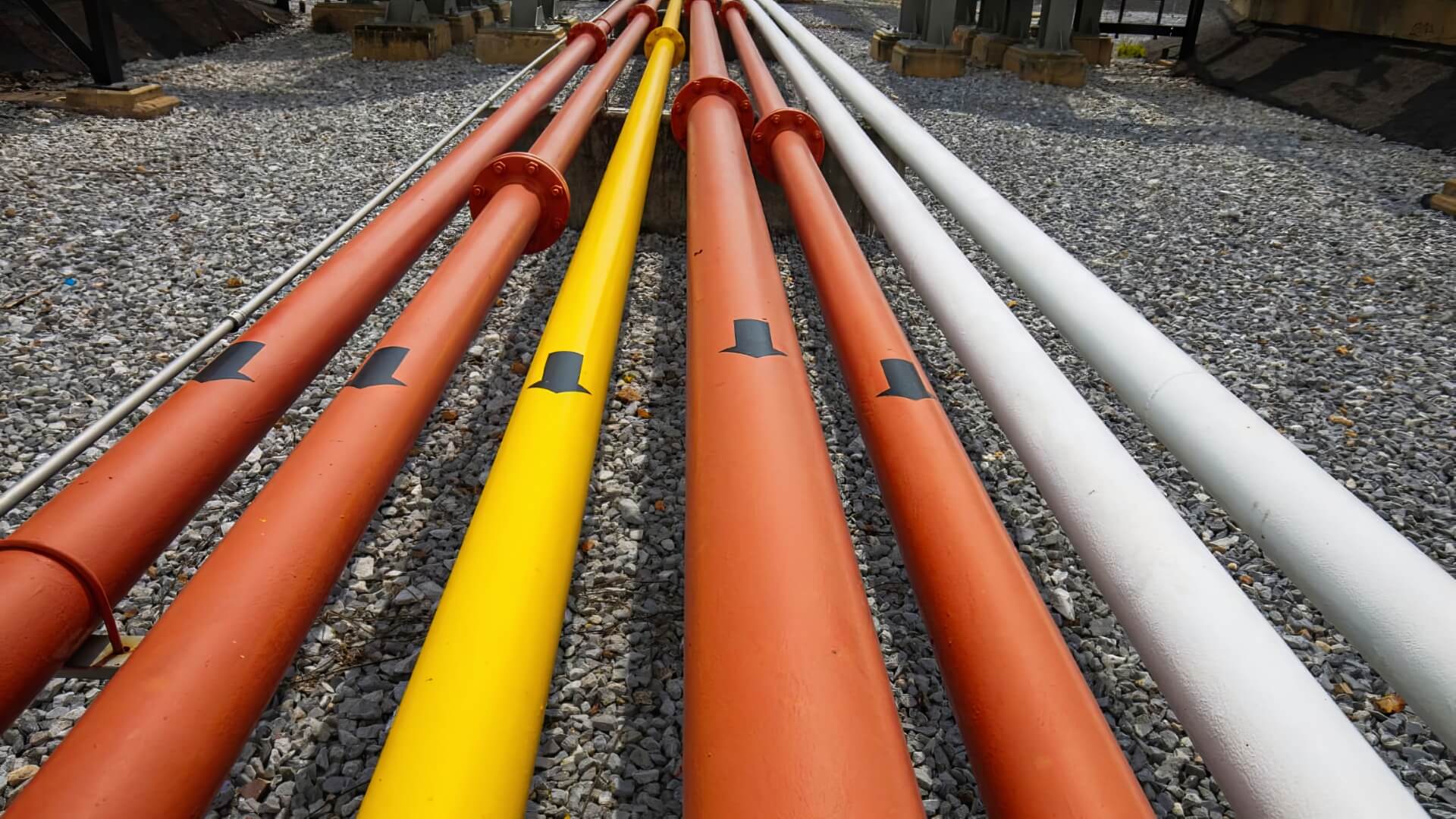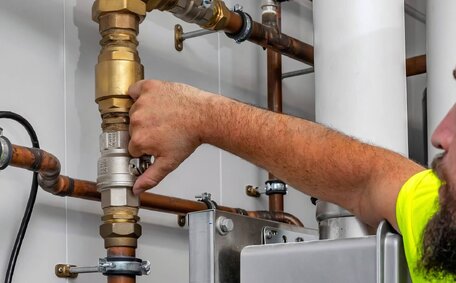Introduction to Gas Appliance Recalls
Defective gas cookers, stoves, and heaters carry significant safety risks. Appliance recalls exist to protect consumers by removing potentially dangerous products from homes. Staying informed about recalls, particularly those concerning open flued gas appliances, is critical to avoid risks like gas leaks, explosions, carbon monoxide poisoning, burns, or even death.
In the last five years, Product Safety Australia has reported over 2 million gas appliance recalls.
Given the low response rates to recalls, it is imperative to contact Swift immediately upon learning of a safety recall. Reasons for this include poor consumer awareness and reluctance to take action. But recognising and responding to recalls promptly is vital for safety.
This article outlines essential information on gas appliance recall procedures for consumer safety. We’ll identify where to find recall notices, how to check if your appliance is affected, key steps to take, as well as your rights and responsibilities.
Staying Informed on Gas Appliance Recalls
Consumers can stay informed about gas appliance recalls for their safety through several methods:
- Register appliances when purchased so manufacturers have your details for direct notifications about recalls or faults related to that product model.
- Monitor recall listings published by government agencies like the ACCC and Product Safety Australia who provide official recall information across all consumer goods.
- Check manufacturer websites or sign up to their mailing lists for alerts and announcements specific to their appliance brands and models.
- Confirm serial numbers against recall listings to identify if your individual appliance is impacted rather than just the model.
- Contact consumer watchdogs like CHOICE who advocate for customer rights by spreading awareness around unsafe and defective products.
Prompt action and active engagement are essential to ensure safe usage of gas appliances and personal safety. It could prevent severe property damage, injuries or even save your life.
Identifying Recalled Gas Appliances
Should you suspect a gas appliance recall, follow these steps:
- Find the data plate depicting brand, model and serial numbers, especially for appliances manufactured in specific years, as directed by the service agent.
- Note down identifying details like the model serial and number.
- Check these numbers against recall listings to see if any 500 series gas cookers are affected, published on websites like the ACCC Recalls Portal, Product Safety Australia or the manufacturer’s website.
- Please call the manufacturer with your appliance details if it matches an appliance under active recall.
Checking your appliance against recall notices helps identify any units that need repair or replacement due to safety concerns. Always follow official guidance from the recall issuer on safe use, shutdown or fixes for affected gas products.
Responding to a Gas Appliance Recall
If your gas appliance is included in an official recall, cease its use immediately and seek professional assistance.
- Begin the recall process by stopping use of the appliance, turning off gas valves, and disconnecting power supplies where possible.
- Check the recall notice for specific advice applicable to the model of your appliance.
- Notify the manufacturer and follow their guidance for inspection, replacement or remedy.
- If instructed, arrange for a licenced technician from Australia pty ltd to render your gas cooker safe until repairs can take place.
- Claim entitled compensation if covered under products pty ltd Consumer Law guarantee rights.
Following recall instructions is critical as faulty gas products can cause leaks, fires, explosions, or release dangerous gases, jeopardizing safety.
Ensure a certified professional carries out repairs on recalled appliances, as unauthorised work could render the appliance dangerous and illegal to operate.
Stay vigilant in checking your gas products against listings so you can respond quickly if found defective. Your caution could save your home, health or life.
Consumer Rights During Recalls
- You have the right to a full refund if the recall is due to a major appliance failure that poses safety risks.
- The right to a replacement or repair if the appliance failure is not deemed a major failure.
- Entitlement to claim compensation for any losses caused by the faulty appliance, such as fire damage or recreational vehicle water damage to your home.
- Coverage under warranty provisions if the recall occurs within an appliance’s warranty period.
- Free repairs to make an appliance safe and compliant with regulations.
- Refunds, replacements or repairs within a reasonable time frame after a recall notice.
- Clear instructions from manufacturers regarding continued appliance use or shutdowns.
Exercising your rights ensures compliance with safety standards and cost recovery for any issues caused by a faulty gas appliance.
Safety Measures for Recalled Appliances
If your gas appliance has been recalled, safety should be your top priority until it can be repaired or replaced. Follow these interim precautions:
- Shut off the gas supply to the appliance and stop using it immediately if instructed to do so.
- Place battery-operated carbon monoxide alarms to detect early signs of gas leaks.
- Purchase affordable gas leak detection sensors that sound alarms if they detect issues.
- Ensure the front left burner control knob of the appliance is inspected by a licenced professional before attempting to use it again.
- If the recalled model continues to be used, ensure the area is well-ventilated.
- Do use caution and never ignore warning signs like unusual smells or sounds coming from the unit.
Awaiting repairs or spare parts, proactively prioritize safety measures. Consult a qualified technician instead of attempting DIY repairs. Stay alert to any symptoms of a malfunctioning appliance that could put your household at risk.
Finding Official Recall Resources
There are two official sources providing comprehensive swift 500 series gas heaters recall information in Australia that consumers should consult:
ACCC Recalls Portal
The Australian Competition and Consumer Commission manages the appliance group website recalls.gov.au - the government’s official recall database. This site lists all recalls ordered by the ACCC across thousands of consumer goods including gas appliances.
Using your browser, you can find recall listings or look up information by keywords, product category or brand to identify recalls relevant to your gas appliances in Australia.
Product Safety Australia
Product Safety Australia publishes information on mandatory recalls and adheres to our privacy during voluntary recalls conducted by manufacturers and suppliers themselves.
Productsafety.gov.au, their recall site, offers consumer alerts on hazardous products, as well as current and past recall listings. It also provides guidance on safety checks and processes for affected items.
Subscribe to email alerts or follow their social media channels to stay updated on the latest recall notifications, typically offered at no free charge.
Registration and Identification of Appliances
Registering your gas appliances is strongly advised to ensure you receive direct manufacturer notifications if recalls arise. When purchasing a new appliance, record key details like brand, model, serial number and keep copies of manuals or warranties.
Locating these numbers enables you to cross-check any future recall notices for cookers manufactured with affected gas components. Check appliance data plates, manual covers or on the rear/base of units to find this vital identifying information.
Create online profiles with manufacturers on their websites for specific updates. By supplying appliance details like make, model and serial numbers, you can subscribe to email updates specific to purchased products.
If registration cards were included with your gas appliance at purchase, complete and mail these right away to receive more information while details are handy. Consider registering second-hand appliances too if proofs of purchase werent provided initially.
Accurately recording your appliance identification numbers is crucial for staying informed. Register them with manufacturers where possible and file the information for convenient future reference during any recall checks.
Websites for Recall Information
There are several useful websites that publish the latest information on gas appliance recalls, providing comprehensive data to consumers:
- The ACCC Recalls Portal at recalls.gov.au lists all recalls ordered by the ACCC including gas appliances.
- Product Safety Australia at productsafety.gov.au provides consumer alerts and recall information across thousands of products.
- Gas appliance manufacturers often have recall sections on their websites, such as Rheem or Viron Evo.
- Industry associations like the Australian Gas Association have gas safety and recall resources on their sites.
- Consumer advocacy groups like CHOICE share reports on faulty products and appliances under recall.
- Our business website MoorebankPlumbing.com.au provides localised gas appliance recall updates relevant to our customers.
Checking these websites regularly can help you gather further information and stay up to date if your gas appliances from swift appliance group are subject to safety recalls so you can take prompt action.
Inspecting Appliances
To identify potential issues before they become dangerous, all gas appliances should be visually inspected at least yearly. Check for:
- Damage - dents, cracks or corrosion which could allow gas leaks.
- Blocked vents or exhaust ports causing poor ventilation.
- Abnormal sounds when operating like hissing or loud clicking.
- New or increased condensation which may indicate a seal failure.
- Unstable flame appearance or faulty burner control - uneven, low or high flames could mean problems.
- Gas odours near the appliance which signal a gas leak.
Signs of wear, like rust or soot on the use front, indicate servicing needs. If any concerning symptoms arise when inspecting your gas appliances, have a licenced technician assess it immediately to prevent potential disaster or poisoning.
Stopping Usage
Immediately cease using a recalled gas appliance to mitigate safety hazards. Using a defective unit can result in gas leaks, explosions, fires, carbon monoxide poisoning or other critical incidents.
Turn off the gas supply and disconnect the appliance from power sources as per the manufacturer’s guidance; I do not attempt to override shut-off mechanisms or operate the equipment, even briefly, once a recall is issued. I do not attempt to override shut-off mechanisms or operate the equipment, even briefly, once a recall is issued.
Only Only recommence using your 500 series gas cooker after obtaining explicit authorisation following an official inspection, repair, or replacement. Strictly follow guidance from the manufacturer, supplier or relevant consumer authorities regarding rendering your gas appliance safe or certified for continued usage.
Suspending operation of recalled gas products until declared fixed protects your home and health. The risks posed by overlooked or ignored 500 series cooker recalls vastly outweigh any inconvenience of discontinuing use.
Getting Repairs and Replacements
If your recalled gas appliance requires repairs or replacement, contact the manufacturer using the details provided in the recall notice.
Most series cooker recalls offer repairs, replacements or refunds free of charge as consumer entitlements under Australian Consumer Law. Adhere to repair timelines, interim safety guidance and use of qualified technicians as directed.
According to the ACCC, less than ten per cent of recalled products in Australia are generally returned or fixed. Expect a similar model replacement or compensation if your appliance is discontinued.
While frustrating, view an appliance recall as an opportunity to update old gas products to modern, safer equivalents. Promptly arrange for official solutions, prioritizing safety.
Consumer Protection Groups
Organisations like CHOICE, the Australian Consumers Association, and state-based consumer affairs agencies publish information on recalls and faulty products to improve public awareness.
These groups also provide advice to people who been affected by swift appliance recalls on their rights and options for refunds, repairs or replacements facilitated by a licensed gasfitter under Australian Consumer Law.
Consumer advocates apply pressure to manufacturers and suppliers to uphold responsibilities around safety recalls, mindful of your personal safety. They campaign for companies to communicate recalls clearly, facilitate remedies promptly and compensate consumers where applicable.
Without independent consumer watchdogs monitoring recalls and mandatory reporting around unsafe products, public safety would be at greater risk. These organisations connect consumers to essential information and assistance for responding to recalls like those affecting defective gas appliances.
Carbon Monoxide Alarms
Carbon monoxide alarms should be installed in any home with gas appliances. They provide an extra layer of protection by detecting dangerous carbon monoxide gas emissions, offering early warning signs of potential problems.
Poor servicing, blocked exhausts, or failed parts can cause gas appliances to leak carbon monoxide. Carbon monoxide is an odourless, invisible gas that can be fatal in high concentrations. Installing low-cost alarms provides an alert to open flued gas leaks so immediate action can be taken.
Opt for tempered glass gas battery-powered carbon monoxide alarms so protection is still provided even in a power outage. Position them near bedrooms and close to gas appliances. Choose models with digital displays indicating carbon monoxide levels for early warnings.
Monthly testing of carbon monoxide alarms and replacing them upon expiration ensures continued protection. Do not overlook symptoms such as headaches or dizziness, which may signify carbon monoxide poisoning.
Combined with regular gas appliance servicing and recall checks, carbon monoxide provide vital reinforcement. They remain on high alert around the clock, adding a critical backstop against dangerous gas leaks or appliance issues.
Government Websites
Australian government websites serve as authoritative hubs for official recall information and safety guidance regarding gas appliances.
The ACCC Product Safety Recalls portal at recalls.gov.au provides details on all current and past recalls as directed by the consumer watchdog. Consumers can browse recalls by product category or use smart search tools to identify recalled gas appliance models.
Other government portals like those run by NSW Fair Trading also publish recall alerts for products like the swift 500 series cooker alongside wider product safety warnings. They advise on risks, required actions, and consumer entitlements while linking back to ACCC recall listings.
Subscribing to email notifications from government agencies provides prompt updates on new gas appliance recalls. Please visit these official state and federal channels which should be kept up to date as key sources of recall data for Australian consumers wanting to protect their households.
Manufacturer Websites
Visiting manufacturer websites is recommended to access specific recall notices and guidance related to your gas cookers manufactured recently.
Brand websites like Rheem, Vulcan, Bosch or Westinghouse have dedicated recall and safety sections. Here you can check appliance model numbers against listings to see if your unit is affected.
Manufacturer portals also allow you to register gas appliance serial numbers for email alerts about future recalls. They provide access to instruction manuals showing data plate locations on products.
While government agency listings cover recalls Australia-wide, exploring manufacturer sites offers details tailored to your actual appliances. This can supplement general recall data with product-specific procedures to follow.
So inspect any notices, download manuals and browse technical bulletins on your gas appliance’s brand website. Coupling this with national recall listings gives comprehensive coverage to identify potential issues.






